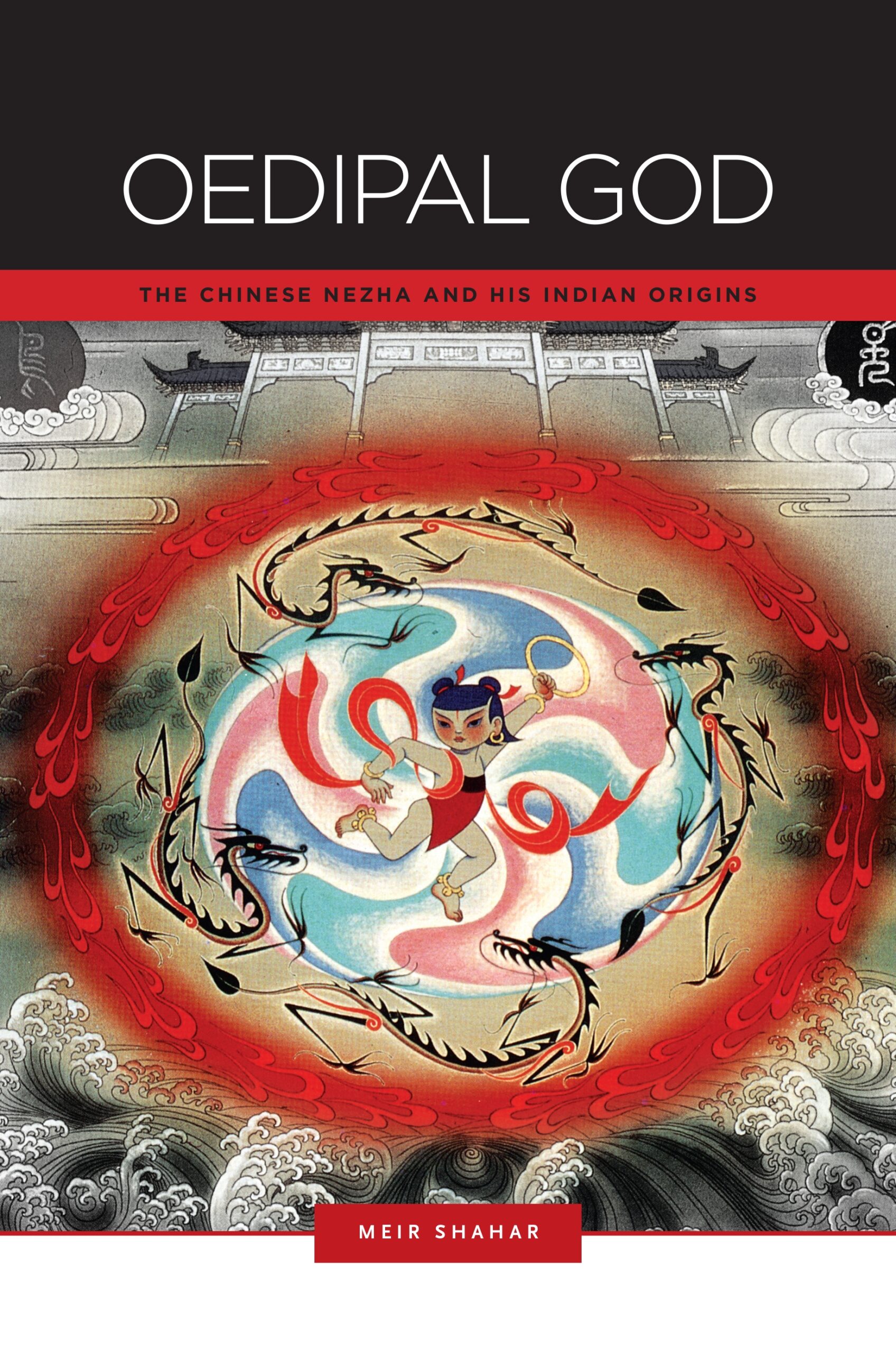Oedipal God: The Chinese Nezha and His Indian Origins
- About the Book
-
Oedipal God offers the most comprehensive account in any language of the prodigal deity Nezha. Celebrated for over a millennium, Nezha is among the most formidable and enigmatic of all Chinese gods. In this theoretically informed study Meir Shahar recounts Nezha’s riveting tale—which culminates in suicide and attempted patricide—and uncovers hidden tensions in the Chinese family system. In deploying the Freudian hypothesis, Shahar does not imply the Chinese legend’s identity with the Greek story of Oedipus. For one, in Nezha’s story the erotic attraction to the mother is not explicitly acknowledged. More generally, Chinese oedipal tales differ from Freud’s Greek prototype by the high degree of repression that is applied to them. Shahar argues that, despite a disastrous father-son relationship, Confucian ethics require that the oedipal drive masquerade as filial piety in Nezha’s story, dictating that the child-god kill himself before trying to avenge himself upon his father.
Combining impeccable scholarship with an eminently readable style, the book covers a vast terrain: It surveys the image of the endearing child-god across varied genres from oral and written fiction, through theater, cinema, and television serials, to Japanese manga cartoons. It combines literary analysis with Shahar’s own anthropological field work, providing a thorough ethnography of Nezha’s flourishing cult. Crossing the boundaries between China’s diverse religious traditions, it tracks the rebellious infant in the many ways he has been venerated by Buddhist monks, Daoist priests, and possessed spirit mediums, whose dramatic performances have served to negotiate individual, familial, and collective tensions. Finally, the book offers a detailed history of the legend and the cult reaching back over two thousand years to its origins in India, where Nezha began as a mythological being named Nalakūbara, whose sexual misadventures were celebrated in the Sanskrit epics as early as the first centuries BCE. Here Shahar reveals the long-term impact that Indian mythology has exerted—through the medium of esoteric Buddhism—upon the Chinese imagination of divinity.
A tour de force of literary analysis, ethnographic research, psychological insight, and cross-cultural investigation, Oedipal God is a must read for anyone interested in Chinese studies and the historical connection between India and China. Shahar’s broad reach and engaging approach will appeal to specialists and students in a variety of disciplines including Chinese religion, Chinese literature, anthropology, Buddhist studies, psychology, Indian studies, and cross-cultural history.
- About the Author(s)
-
Meir Shahar, Author
Meir Shahar is associate professor in the Department of East Asian Studies, Tel Aviv University.
- Reviews and Endorsements
-
- Oedipal God is a thought-provoking study of the Chinese child god Nezha 哪吒 (also written as Nazha 那吒), renowned for not only his martial prowess but also for his attempts to murder his father, Li Jing 李靖. . . . This book draws on an interdisciplinary approach—combining historical research and fieldwork—to open our eyes to the impact of the Oedipus complex and Esoteric Buddhism on Chinese hagiography and ritual. Oedipal God also benefits from a broad comparative perspective that considers such phenomena from the perspective of world religions. . . . Oedipal God succeeds in venturing into realms where few scholars have gone before. This book’s fascinating data, combined with Shahar’s masterful analytical skills and writing style, make it highly suitable for both research and classroom use.
—Reading Religion - Drawing on a wide variety of primary sources, such as novels, vernacular fiction and drama, and Buddhist and Daoist scriptures, as well as visual portrayals and ethnographic material, Shahar highlights various aspects of Nezha as an unruly infant, Tantric warrior, antiestablishment rebel, and revolutionary martyr. Focusing on the legend of Nezha, his tumultuous relationship with his father, and the ramifications of his flagrant violations of the Confucian virtue of filial piety, this book offers an informative window into many broader themes, such as the transcultural flow of religious beliefs and ideas between South and East Asia, the impact of popular culture on religion, the tension between individual aspirations and social duty, and the applicability of the oedipal complex, described by Sigmund Freud as a universal feature of the human psyche, to Chinese culture.
—Ori Tavor, University of Pennsylvania, The Journal of Religion
- Oedipal God is a thought-provoking study of the Chinese child god Nezha 哪吒 (also written as Nazha 那吒), renowned for not only his martial prowess but also for his attempts to murder his father, Li Jing 李靖. . . . This book draws on an interdisciplinary approach—combining historical research and fieldwork—to open our eyes to the impact of the Oedipus complex and Esoteric Buddhism on Chinese hagiography and ritual. Oedipal God also benefits from a broad comparative perspective that considers such phenomena from the perspective of world religions. . . . Oedipal God succeeds in venturing into realms where few scholars have gone before. This book’s fascinating data, combined with Shahar’s masterful analytical skills and writing style, make it highly suitable for both research and classroom use.
- Supporting Resources
-





